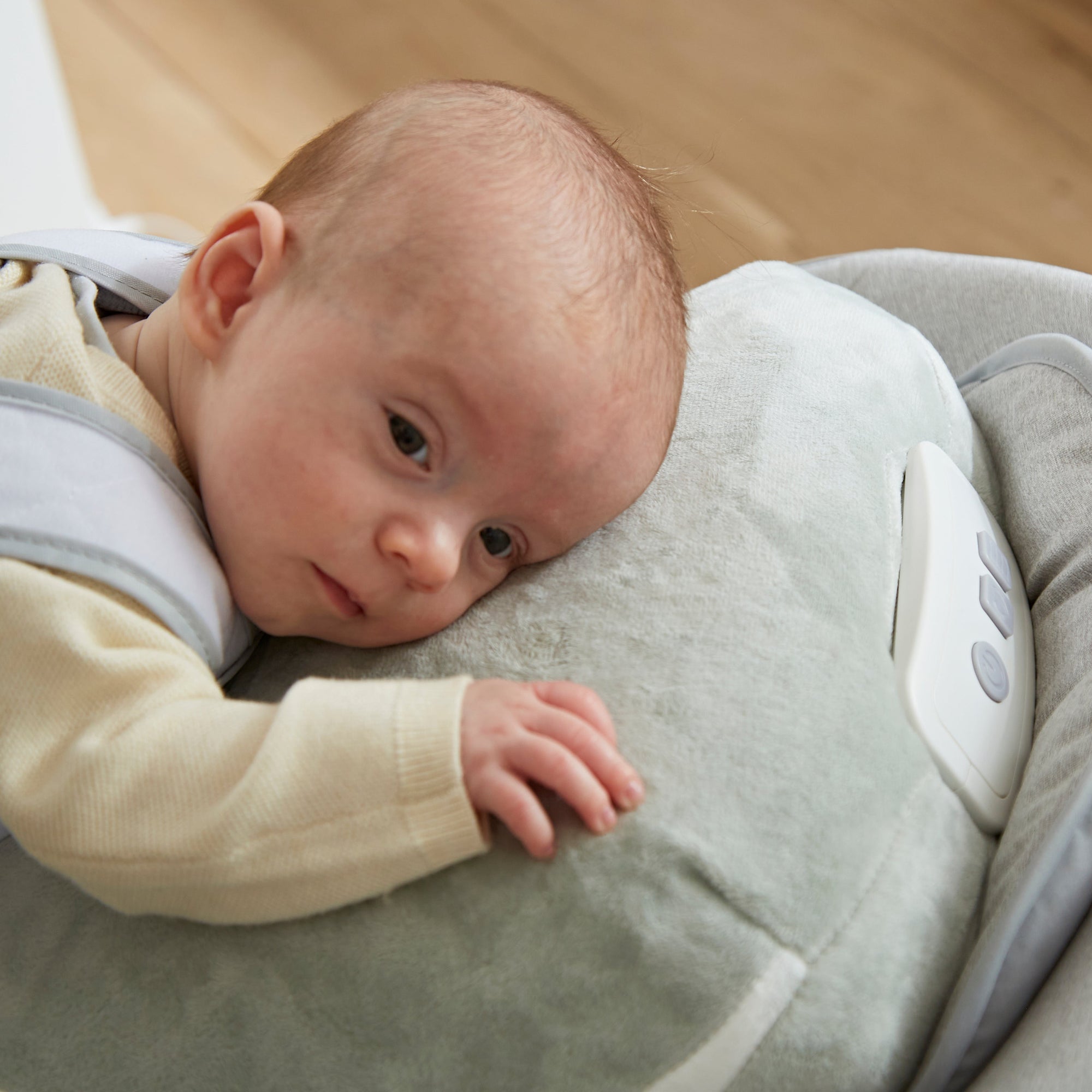Causes and Symptoms of Trapped Wind in Newborns
Babies will often swallow air bubbles while feeding which is a primary cause of trapped wind. This can affect both breastfed and bottle fed babies. However, air bubbles more commonly occur whilst bottle feeding. Gas is also produced during the digestion process, some little ones produce more gas than others which is another prime cause of trapped wind. Other causes include overfeeding, lactose intolerance and excessive air intake whilst your baby is crying.

Symptoms your baby may experience include a bloated tummy, straining to pass wind, difficulty burping and excessive flatulence. These symptoms can be very unsettling for newborns and can result in a lot of crying. Not to worry, here is some guidance on what you can do to prevent and ease trapped wind for your newborn.
Burping Techniques
There are three different techniques you can try when it comes to winding your newborn. It is a good idea to alternate between these methods to find what works best for your baby. A good time to burp your newborn is during or after feeding whenever these pesky little air bubbles occur. If your baby is showing signs of being uncomfortable during a feed such as crying, pulling away or wriggling around this could be an indication of trapped wind. This would be a good opportunity to try out these burping techniques.
- Hold your baby on your shoulder with their body facing yours. Your baby’s chin should be resting against your shoulder while you hold their bottom with one hand and gently pat and stroke their back with the other hand to help release gas.
- Place your newborn on your lap, facing away from you. Use one arm to support your baby's body, with the palm of your hand on their chest as your fingers support the chin and jaw. Keep your fingers away from the throat area. Then you can burp your baby with the other hand by softly rubbing or patting their back.
- Sitting somewhere comfortable and supportive, lie your baby face down on your legs so they're resting across your knees at a right angle to your body. Use one hand to support your baby’s chin and jaw, holding their head slightly higher than the body. With your other hand you can wind your baby by patting and rubbing their back.
Hands-Free Assistance
It can be difficult for parents of newborns with trapped wind; trying to settle them can be a round-the-clock challenge. The babocush can help to soothe newborns experiencing trapped wind and this hands-free assistance allows busy parents more time to concentrate on other household tasks or take some well needed relaxation time. Specifically designed for infants with colic and reflux difficulties, the babocush allows your baby to rest at an angle which allows their airways to open and relax, in a comforting and enjoyable position. The heartbeat simulator inside the cushion and soft vibrations aid in relaxation for newborns with trapped wind, creating a peaceful environment for both you and your baby.
Read more about the babocush and see how it can help you with winding, crying, colic and a host of other common conditions.
Baby Massage
Baby massage is another great method to ease your newborn’s trapped wind. A gentle abdominal massage can help move gas through your baby’s digestive system, allowing them to release trapped wind. This action also provides pain relief as the hormone oxytocin is released which calms and soothes your baby. Another benefit of baby massage is that it helps to mature the digestive tract through a process called myelination. This improves your newborn’s brain to body communication so the more you massage your baby, the better they become at managing their trapped wind.
A good time to try out baby massage is during bath time when your baby is nice and relaxed. Gently and slowly rub your baby’s tummy in a circular clockwise motion. This should feel good for your baby and will create a beautiful bonding experience. For more techniques and guidance on baby massage check out this Youtube channel.
Thanks for reading, I hope you find these tips helpful.
Kerry x
Related Blogs:


